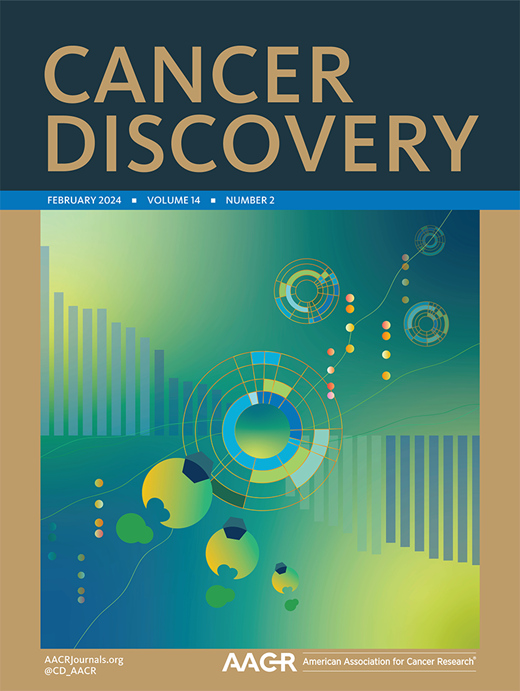Detection of brain cancer using genome-wide cell-free DNA fragmentomes.
IF 33.3
1区 医学
Q1 ONCOLOGY
引用次数: 0
Abstract
Diagnostic delays in patients with brain cancer are common and can impact patient outcome. Development of a blood-based assay for detection of brain cancers could accelerate brain cancer diagnosis. In this study, we analyzed genome-wide cell-free (cfDNA) fragmentomes, including fragmentation profiles and repeat landscapes, from the plasma of individuals with (n=148) or without (n=357) brain cancer. Machine learning analyses of cfDNA fragmentome features detected brain cancer across all grade gliomas (AUC=0.90, 95% CI: 0.87-0.93) and these results were validated in an independent prospectively collected cohort. cfDNA fragmentome changes in patients with gliomas represented a combination of fragmentation profiles from glioma cells and altered white blood cell populations in the circulation. These analyses reveal the properties of cfDNA in patients with brain cancer and open new avenues for noninvasive detection of these individuals.利用全基因组无细胞DNA片段组检测脑癌。
脑癌患者的诊断延误很常见,并可能影响患者的预后。一种基于血液的脑癌检测方法的发展可能会加速脑癌的诊断。在这项研究中,我们分析了来自脑癌患者(n=148)和非脑癌患者(n=357)血浆的全基因组无细胞(cfDNA)片段组,包括片段谱和重复序列。cfDNA片段组特征的机器学习分析在所有级别的胶质瘤中检测到脑癌(AUC=0.90, 95% CI: 0.87-0.93),这些结果在一个独立的前瞻性收集的队列中得到验证。胶质瘤患者的cfDNA片段组变化代表了胶质瘤细胞片段谱和循环中白细胞群改变的结合。这些分析揭示了脑癌患者cfDNA的特性,为这些个体的无创检测开辟了新的途径。
本文章由计算机程序翻译,如有差异,请以英文原文为准。
求助全文
约1分钟内获得全文
求助全文
来源期刊

Cancer discovery
ONCOLOGY-
CiteScore
22.90
自引率
1.40%
发文量
838
审稿时长
6-12 weeks
期刊介绍:
Cancer Discovery publishes high-impact, peer-reviewed articles detailing significant advances in both research and clinical trials. Serving as a premier cancer information resource, the journal also features Review Articles, Perspectives, Commentaries, News stories, and Research Watch summaries to keep readers abreast of the latest findings in the field. Covering a wide range of topics, from laboratory research to clinical trials and epidemiologic studies, Cancer Discovery spans the entire spectrum of cancer research and medicine.
 求助内容:
求助内容: 应助结果提醒方式:
应助结果提醒方式:


